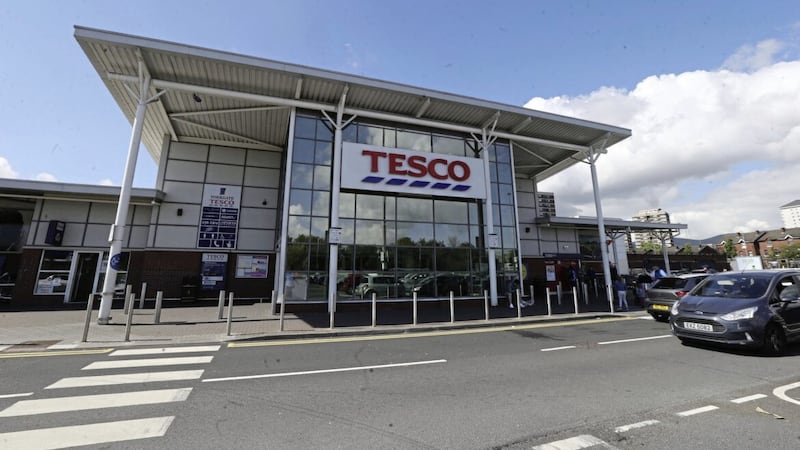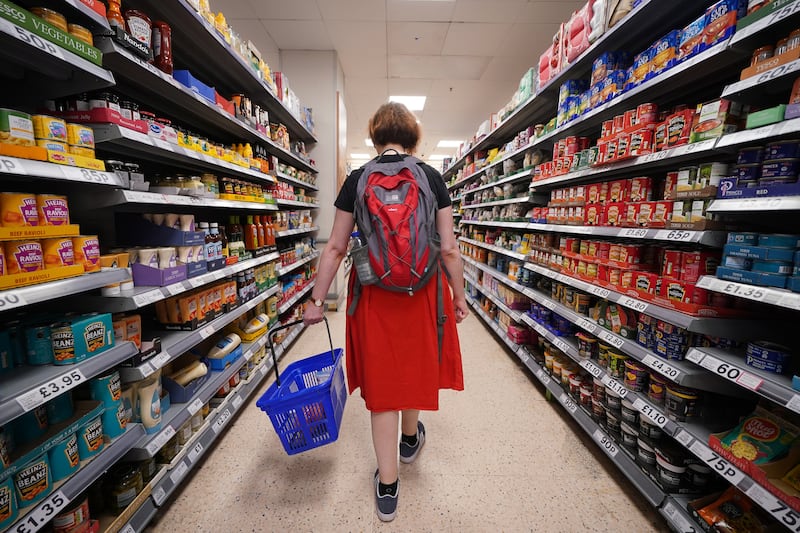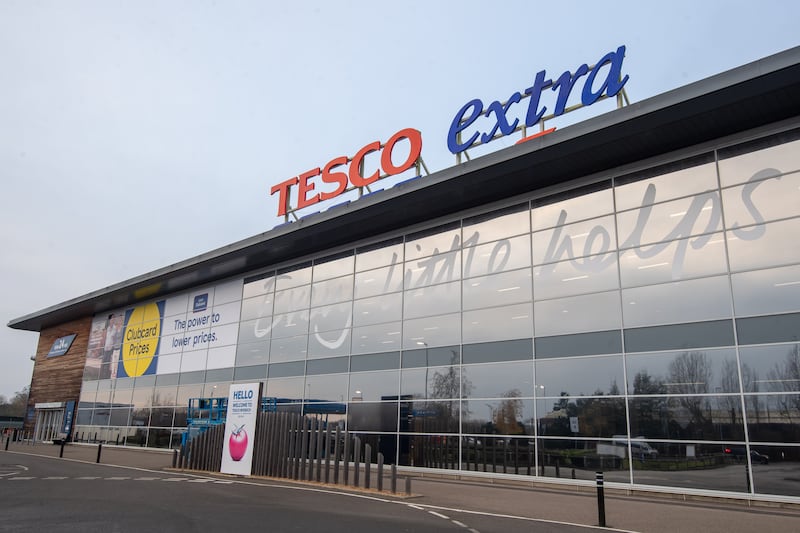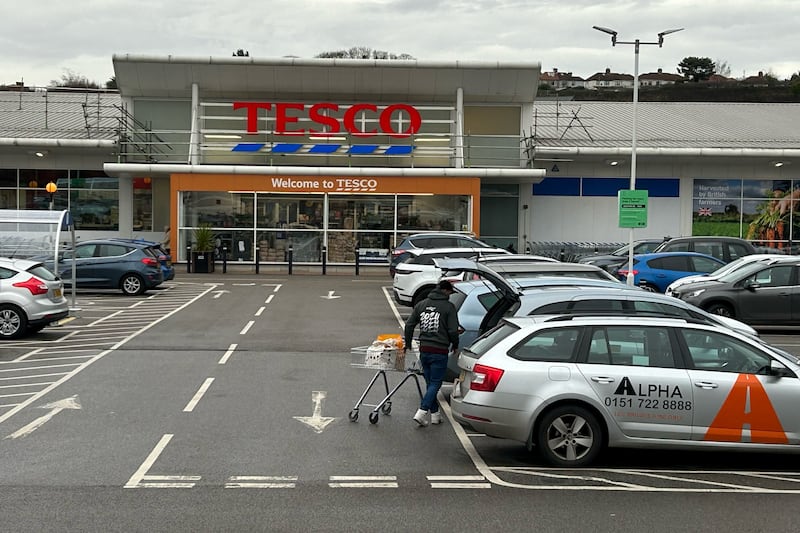NORTHERN Ireland’s biggest retailer Tesco has revealed falling half-year profits and warned that annual earnings will be towards the lower end of expectations amid soaring inflation and as customers trade down in the cost crisis.
The supermarket giant, which has 53 stores across the north, warned of "significant" inflation pressures and a return in food shopper habits to those seen before the pandemic, which it said were being compounded by customer moves to rein in spending amid the cost-of-living crunch.
The results were published as new research from consumer watchdog ‘Which?’ ranked Tesco as more expensive than Sainsbury’s, Asda and Lidl in its monthly grocery comparison.
The survey, which compares the cost of 48 popular groceries, found Tesco charged £87.37, compared with Lidl (£77.45), Asda (£84.87) and Sainsbury’s (£86.34).
On Wednesday, Tesco said it expects annual underlying retail earnings of between £2.4 billion and £2.5bn - the lower end of previous guidance for between £2.4bn and £2.6bn and a fall from the £2.7bn notched up in the previous year.
The more cautious outlook came as it posted a 10 per cent fall in underlying retail operating profits to £1.25bn for the six months to August 27, despite group sales excluding fuel rising 3.1 per cent to £28.2bn.
Easily Northern Ireland's largest private sector employer, Tesco had just under 10,000 staff on its books here in 2020.
On Wednesday it unveiled its second staff pay rise this year to help support workers amid the cost crisis and said it was freezing the prices of more than 1,000 everyday products until 2023 to help cash-strapped customers.
It said the basic hourly rate of pay for store staff will increase by a further 20p to £10.30 - or £10.98 in London - from November 13, meaning hourly rates have increased by nearly 8 per cent this year.
Chief executive Ken Murphy said: "We know our customers are facing a tough time and watching every penny to make ends meet.
"That's why we're working relentlessly to keep the cost of the weekly shop as affordable as possible.
"As we look to the second half, cost inflation remains significant, and it is too early to predict how customers will adapt to ongoing changes in the market."
The half-year results showed UK like-for-like retail sales edged 0.7 per cent higher over the first half, having fallen by 1.5 per cent in the group's first quarter.
The big four supermarkets have come under increasing pressure from the German discounters as shoppers seek better value, with Aldi recently leapfrogging Morrisons to become the UK's fourth largest supermarket for the first time.
Mr Murphy said customers were buying less on each shopping trip, switching to cheaper own-brand products and from fresh to frozen food as part of efforts to cut costs in the face of soaring inflation, which hit 9.9 per cent in August.
The group has also seen a drop in non-food and clothing sales as part of customer cutbacks.
"Customers are seeking out the quality and value of our own-brand ranges as they work to make their money go further, whether they are switching from branded products, between categories or cutting back on eating out," he said.
Mr Murphy added there were "significant uncertainties" in the wider economy and the consumer outlook, but added that "customers are determined to enjoy Christmas".
"We think it's going to be a Christmas that people are going to want to celebrate but will want to celebrate in a more affordable way," he said.








